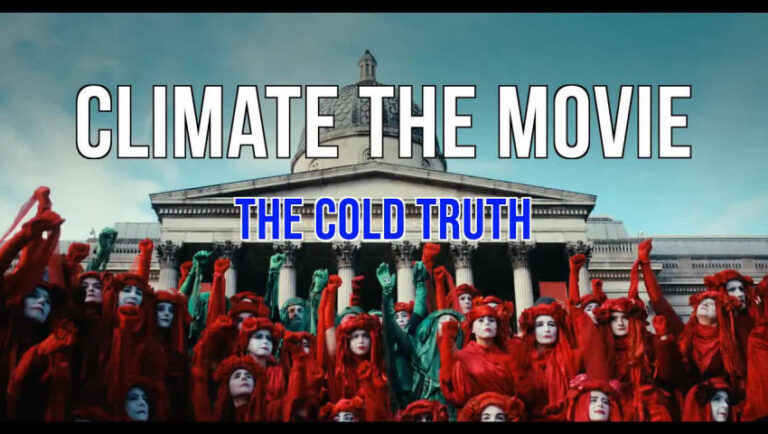In “One Idea to Rule Them All”, Michelle Stiles is reverse engineering American propaganda
How do we parse out propaganda in our fast-paced, digitally dissolving, ‘post-truth’, fake-news world? Michelle Stiles’ ambitious and beautiful book can help. She began working on One Idea to Rule Them All in 2018, and her topic of choice has proved prescient. More than ever, now we must be able to identify propaganda and sift through stories for grains of truth. It is a comprehensive, contemporary, and approachable work on propaganda, and deserves to be on the bookshelf of every modern-day truth seeker.
The book itself is beautifully designed, with an appealing layout, intelligent pull-quotes, and intriguing graphics throughout.
Stiles begins by building out a historical foundation of the last 130+ years of propaganda techniques:
- The selling of war, starting in World War I[1]
- The manufacture of ideas and consent[2]
- The mass consolidation of news media into just six conglomerates[3]
- The ever-more-intimate relationship between the American Intelligence Agencies and Hollywood[4]
Seven Techniques of Propaganda
Stiles outlines the history following World War One, reminding us that there was a brief and futile pushback against the use of propaganda by the government against the people.[5]The Institute for Propaganda Analysis was formed in 1938, dedicated to protecting democracy from the threat of propaganda. (Spoiler: it failed.) But this Institute identified seven main techniques of propaganda, most still widely in use today:
- Name Calling: A device to discredit an opponent without refuting his claim.
- Glittering Generalities: A device that identifies a position with “virtue” by use of words like truth, freedom, democracy, liberty, etc.
- Transfer: An appeal which seeks to carry over the authority, sanction, or prestige of something we respect.
- Testimonial: A device to use the opinion of an expert authority for propaganda purposes.
- Plain Folks: An appeal to win confidence by appearing to be like the common people being addressed.
- Card-Stacking: An appeal that uses under-emphasis or over-emphasis to dodge issues and evade facts.
- Band Wagon: An appeal that encourages us to follow the crowd because “Everybody is doing it.”
[6]
The Infrastructure of Belief
Providing many current examples, Stiles describes The Infrastructure of Belief, first outlined in 1886 by Gustav Le Bon. There are five pillars that form our belief systems:
- Imagination: the cultural pillar, exemplified by education, arts, religion, and Hollywood. Stiles cites research from 2017 showing that 1800 Hollywood films and tv shows since 2005 have been influenced by military intelligence. This captures the imagination, setting it into service of the propagandists.
- Language: the weaponization of words, and the sanitization of speech. The use of language has been captured, censorship abounds, and definitions are changed to suit the propagandists.
- Experience: is manipulated by the mass staging of events presented as naturally occurring cultural phenomena. (i.e. Torches of Freedom)
- Authority: Experts, Agencies, and Institutions are captured into service of the propagandists, and most people are still inclined to trust the experts in our complicated world.
- Social Pressure: the daily need we feel to conform to our peers, even if they are gathering into lemming-formations. The Emperor has No Clothes!
Stiles says: “Savvy practitioners who manipulate The Infrastructure of Belief for their own ends know that propaganda is NOT an operation of logic. Let me repeat: propaganda is NOT an operation of logic or reason, and those who think otherwise have already been defeated. Modern propaganda works insidiously through the pillars of influence we have been hardwired to trust.”[7]
Operation Sheepskin
Like the name suggests, Stiles has coined this term to describe efforts by the ‘wolf’ to walk around in ‘sheep’s clothing.’ But, she points out, “This is not a lone wolf operation; it requires a pack of wolves, a cabal of sorts working together for a clandestine reason.” [8]
Problem – Reaction – Solution
The Hegelian Dialectic, of Thesis – Antithesis – Synthesis, is used in Operation Sheepskin by manufacturing a problem, narrating a reaction, and then proposing a ‘solution’ that is desirable to the propagandists and pre-fabricated.
Wisdom states that if one focuses only on the problem, one can’t see the solution. In the P-R-S scenario, the problem is exaggerated, the reaction is manipulated, and the solution is false and engineered to serve the propagandist.
Operation Spider’s Web
The final step in the propagandist’s playbook is leveling up from Operation Sheepskin into Operation Spider’s Web: the fabrication of a global narrative which is nearly impossible to pierce.
The Transnational Capitalist Class are the ‘global elite’ acting via 17 mega-giant investment firms with over 43 trillion dollars invested and ownership in the top 15 thousand corporations. They are all interconnected and supported by their giant public relations (propaganda) firms. [9]
True Solutions
Educating yourself in the tools of propaganda are the most important steps.
Ways to identify propaganda include: understanding the models being used to influence you, following the money, learning from whistleblowers, asking questions, and digging deeper.
Trusting yourself to see through the fog, looking carefully at how words are being used, and committing to “Live Not By Lies” as Alexandr Solzhenitsen proposed[10] are the primary antidotes to the propagandistic abuse of language we are all experiencing and the tyranny that follows in its wake.
[1] Stiles, Michelle. One Idea to Rule Them All: Reverse Engineering American Propaganda. 2022. Page 6.
[2] Ibid, 24-27
[3] Ibid, 36
[4] Ibid, 37
[5] Ibid, 65
[6] Ibid, 67
[7] Ibid, 77
[8] Ibid, 96
[9] Ibid, 121
[10] https://journals.sagepub.com/doi/pdf/10.1080/03064220408537357








